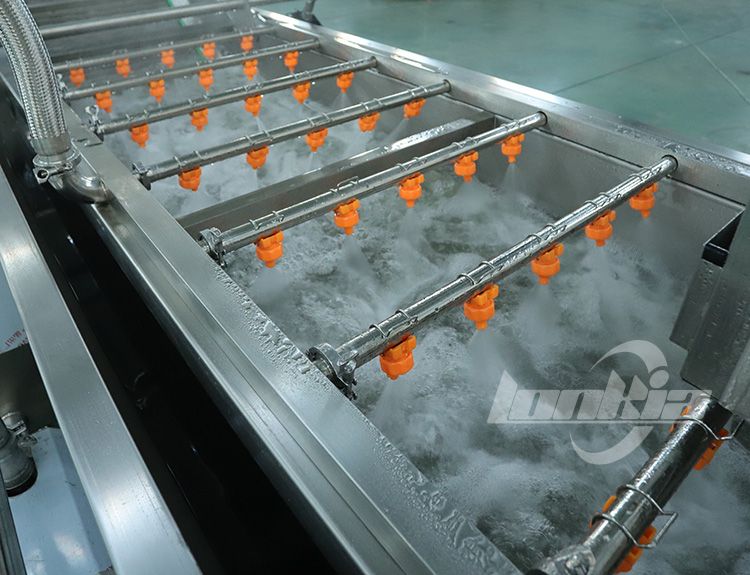Pesticide residues on fresh vegetables are a growing concern for food processors, restaurants, and health-conscious consumers alike. Traditional washing methods may remove visible dirt, but they often fail to eliminate chemical residues completely. That’s where an ozone vegetable washing machine becomes a game-changer.
Let’s explore how this innovative equipment works and why it's one of the most effective solutions for pesticide removal.
What Is an Ozone Vegetable Washing Machine?
An ozone vegetable washing machine uses ozone (O₃) gas dissolved in water to clean fruits and vegetables. Ozone is a natural disinfectant and oxidizing agent that breaks down harmful substances—including pesticides—without leaving chemical residues.
The machine generates ozone through an onboard ozone generator, injects it into the wash water, and circulates it around the produce using bubble or spray agitation.
💡 Ozone is 50 times more effective than chlorine and acts 3,000 times faster.

How Ozone Removes Pesticides from Vegetables
Ozone removes pesticides through a chemical oxidation process. When ozone molecules come into contact with pesticide residues, they break down the molecular structure of the chemicals, rendering them non-toxic or transforming them into harmless byproducts like CO₂ and water.
The benefits of this method include:
No chemical residue on food or in wastewater.
Wide-spectrum effectiveness across various types of pesticides.
Reduced microbial load (bacteria, viruses, mold spores) in the same cycle.
Key Advantages for Food Businesses
✅ 1. Higher Food Safety Standards
Ozone treatment helps food businesses meet increasingly strict hygiene and chemical residue limits. It's ideal for companies that export to regions with tough pesticide regulations (e.g., EU, Japan).
✅ 2. Improved Shelf Life
By eliminating not just pesticides but also microbial contaminants, ozone washing contributes to longer product freshness.
✅ 3. Eco-Friendly Operation
Since ozone reverts back to oxygen, it doesn’t pollute the environment or require additional chemical treatments—making it sustainable and safe for wastewater systems.
✅ 4. Labor and Time Efficiency
Ozone washers handle large volumes of vegetables quickly and with consistent results, reducing reliance on manual washing and improving production throughput.
How to Use the Machine Effectively
Choose the right concentration: Most ozone systems allow you to adjust output (typically between 0.5–2 ppm for vegetable washing).
Control washing time: 3–10 minutes of ozone exposure is usually sufficient, depending on vegetable type and contamination level.
Maintain the system regularly: Clean filters, replace ozone plates, and check sensors to ensure performance.
🛠️ Always follow manufacturer recommendations, especially for sensitive produce.
Conclusion
An ozone vegetable washing machine offers a powerful, non-toxic, and environmentally friendly way to remove pesticides and pathogens from fresh produce. For food processing plants, central kitchens, or vegetable exporters, this technology is not just a cleaning tool—it’s a food safety upgrade.
LONKIA Machinery provides advanced ozone vegetable washers tailored to different capacities and product types. Contact us to learn more or request a quote for your facility.

